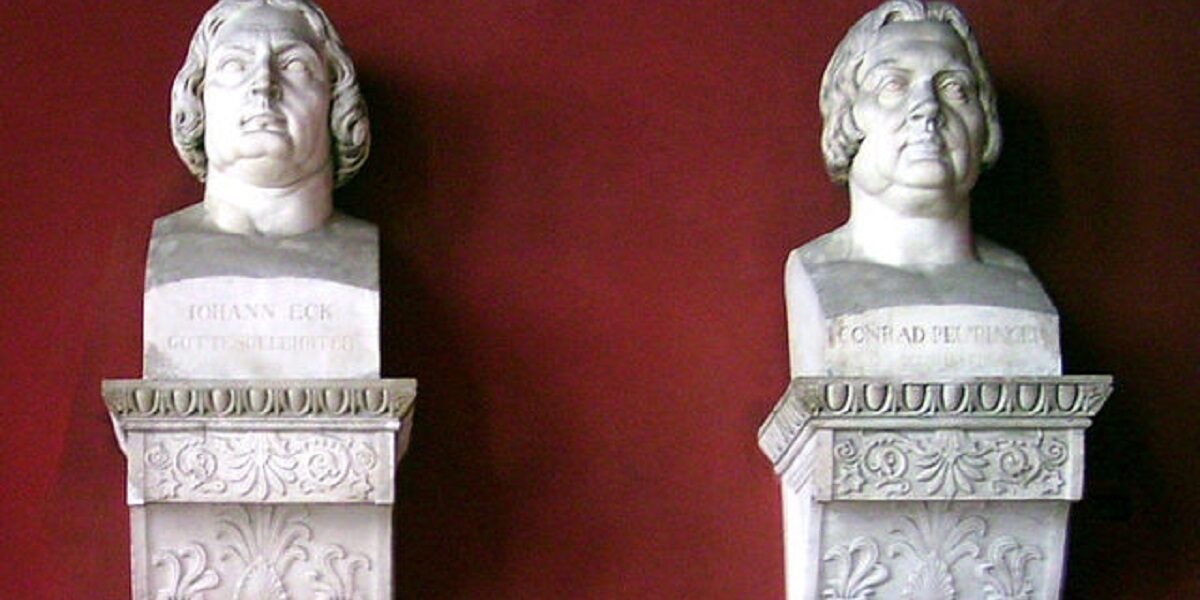isConrad Peutinger II, born in 1475 in Augsburg, Germany, was a remarkable figure during the Renaissance. He was a well-educated man, known for his work as a scholar, humanist, and political figure. Peutinger’s influence extended across many disciplines, including law, classical studies, history, and diplomacy. His enduring legacy, however, is most closely tied to his role as a collector of ancient manuscripts. Especially Roman documents, and his contribution to the preservation of European historical knowledge. This article delves into Peutinger’s life, achievements, and significance in shaping Renaissance scholarship.
Early Life and Education
Born into a wealthy and influential family, Peutinger had access to education and resources that enabled his intellectual growth. His father, Conrad Peutinger I, was a prominent figure in the city of Augsburg, and the family’s wealth was derived from their successful involvement in the legal and commercial sectors. From an early age, Conrad II was exposed to the humanist ideals of the time. Which emphasized a return to the classical antiquities and the study of ancient Greek and Roman texts.
Conrad Peutinger II attended university in Italy, a hub for Renaissance humanism. He studied law at the University of Padua, one of the most prestigious institutions in Europe at the time. It was in Padua that Peutinger was exposed to a world of classical knowledge and antiquities that would shape his future scholarly pursuits. He was deeply influenced by the works of Roman historians and philosophers.
Political and Diplomatic Career
Upon returning to Augsburg, Conrad Peutinger II embarked on a successful career as a lawyer and a politician. He served as the city’s syndic, a legal advisor, and was involved in diplomatic missions on behalf of the Holy Roman Emperor Maximilian I. Peutinger’s legal and political career provided him with a platform to engage in broader European diplomatic affairs. Allowing him to travel extensively and interact with other intellectuals of the time.
One of Peutinger’s key contributions in the political sphere was his involvement in the Imperial Diets. Which were gatherings of the Holy Roman Empire’s various estates. His diplomatic skills and knowledge of Roman law made him an invaluable asset in negotiating between different factions within the Empire. Peutinger’s career in diplomacy also provided him with opportunities to collect ancient manuscripts. Coins, and artifacts, further fueling his passion for classical studies.
Peutinger’s Map: The Tabula Peutingeriana
Perhaps the most well-known of Conrad Peutinger’s contributions to history is the Tabula Peutingeriana, a medieval map of the Roman Empire’s road network. This map, named after Peutinger because of his role in preserving it, is a significant artifact that offers a glimpse into the geographic understanding of the ancient world.
The map itself is a long scroll, stretching about 6.75 meters (22 feet), and it displays the major roads, cities, rivers, and landmarks of the Roman Empire. But Peutinger received it in the early 16th century. The map was initially passed to him by a friend, the humanist Konrad Celtes, who discovered it in a monastery library. Although Peutinger did not personally create the map, his role in preserving it was crucial to its survival. Today, the map remains one of the most important cartographic records from the Roman period, housed in the Austrian National Library in Vienna.
The Tabula Peutingeriana not only offered valuable insights into Roman road systems but also helped later scholars better understand the geography and infrastructure of the Roman Empire. It highlighted the importance of travel and communication across vast distances, showcasing the complexity of Roman engineering and the Empire’s interconnectedness. Peutinger’s efforts in safeguarding this map contributed to the broader Renaissance project of reviving classical knowledge.
Contributions to Humanism and Scholarship
Conrad Peutinger II was more than a political figure; he was also a devoted scholar and humanist. This interest in the classical world extended to a wide range of topics, including history, law, archaeology, and philology. His extensive library included works of Roman historians such as Livy and Tacitus, as well as Greek philosophers and poets. His correspondence with other intellectuals of his time. Such as Erasmus of Rotterdam, reflects his deep engagement with the intellectual currents of the Renaissance.
Peutinger was an avid collector of antiquities, manuscripts, and inscriptions. He contributed to the rediscovery and interpretation of Roman antiquities. Helping to bridge the gap between the ancient and modern worlds. His collection of Roman inscriptions, known as the “Peutingerian Inscriptions,” was instrumental in the study of Roman epigraphy, which is the analysis of ancient inscriptions. These inscriptions provided crucial information about Roman laws, decrees, and everyday life, enriching the understanding of Roman history and culture.
He also played a vital role in establishing institutions that would foster learning and the preservation of knowledge. He supported the foundation of libraries and encouraged the dissemination of printed books. Which was a revolutionary development of the time due to the recent invention of the printing press. His work contributed to the growth of Renaissance scholarship, particularly in the areas of classical studies and history.
Legacy
His efforts to preserve and promote classical antiquities helped fuel the intellectual revival that defined the era. The Tabula Peutingeriana, his collection of inscriptions, and his role as a political diplomat and scholar solidified his place in the annals of European history.
Peutinger’s legacy extends beyond his lifetime, as his works continue to inform scholars and historians today. The map that bears his name remains a key artifact for understanding the Roman Empire, and his dedication to preserving ancient knowledge has ensured that the intellectual achievements of the classical world were passed down to future generations. Conrad Peutinger II, a man of many talents, epitomized the Renaissance ideal of a well-rounded, learned individual. Whose contributions helped shape the course of European intellectual history.





